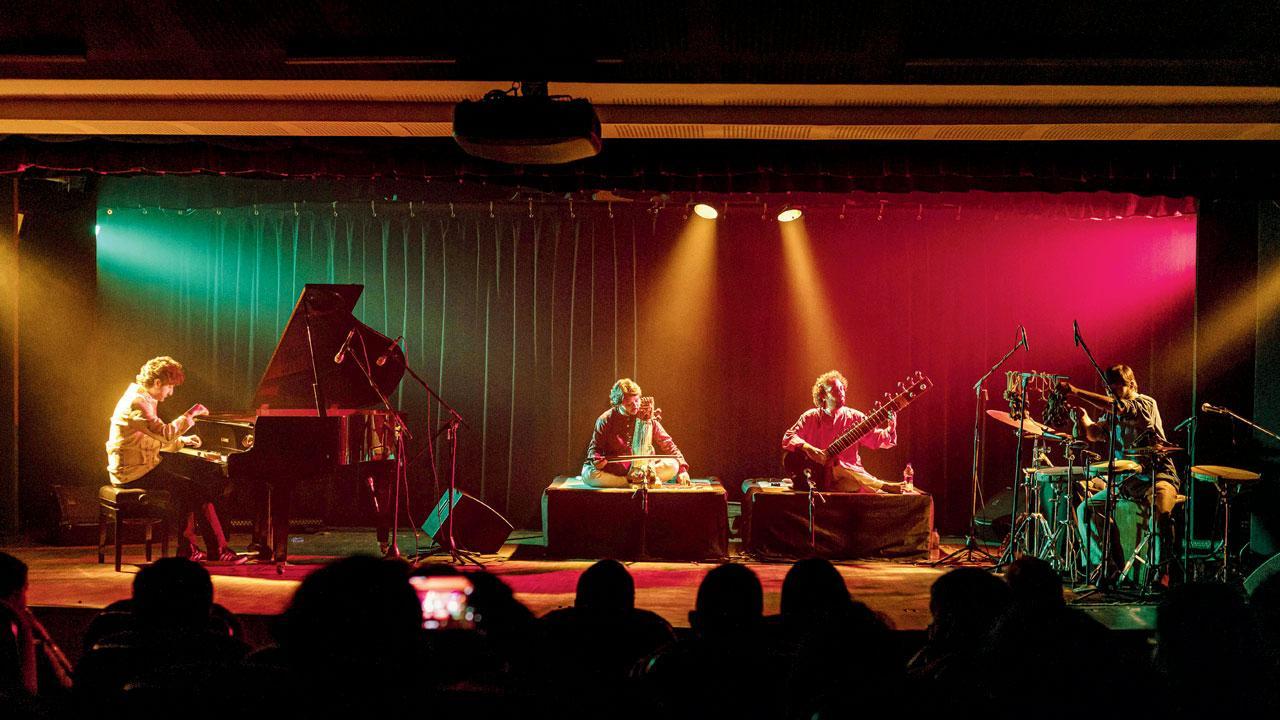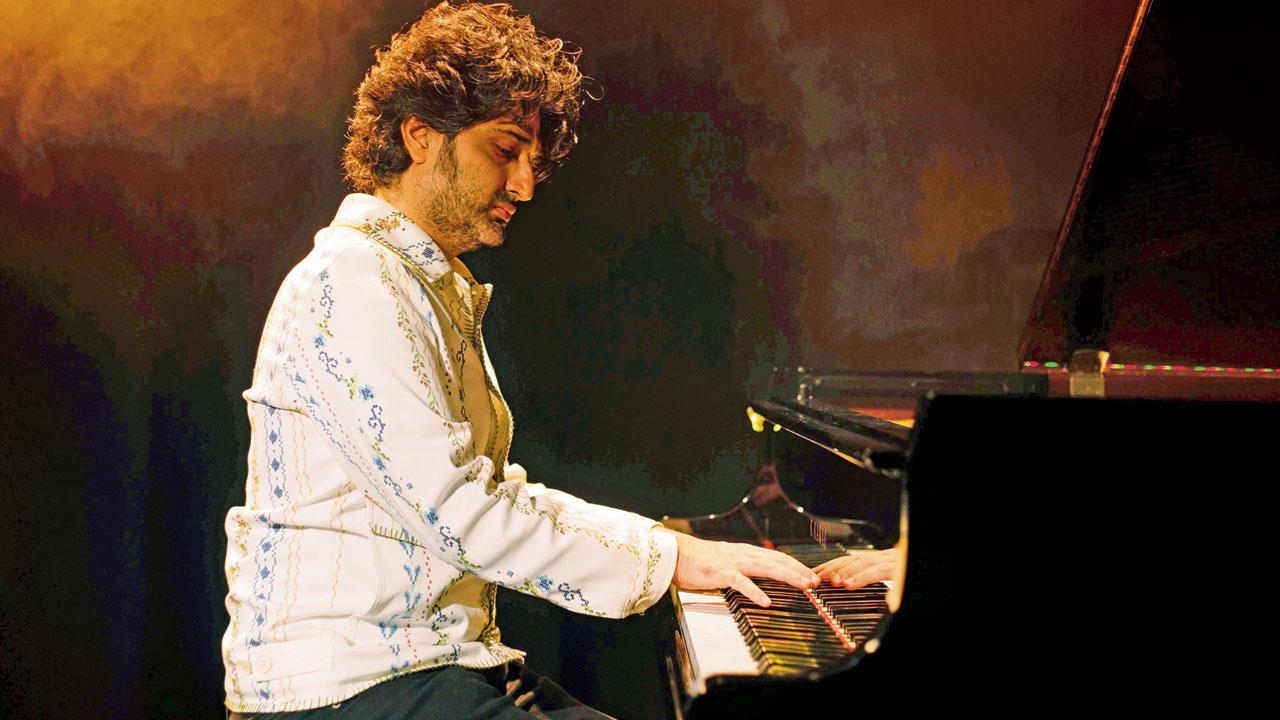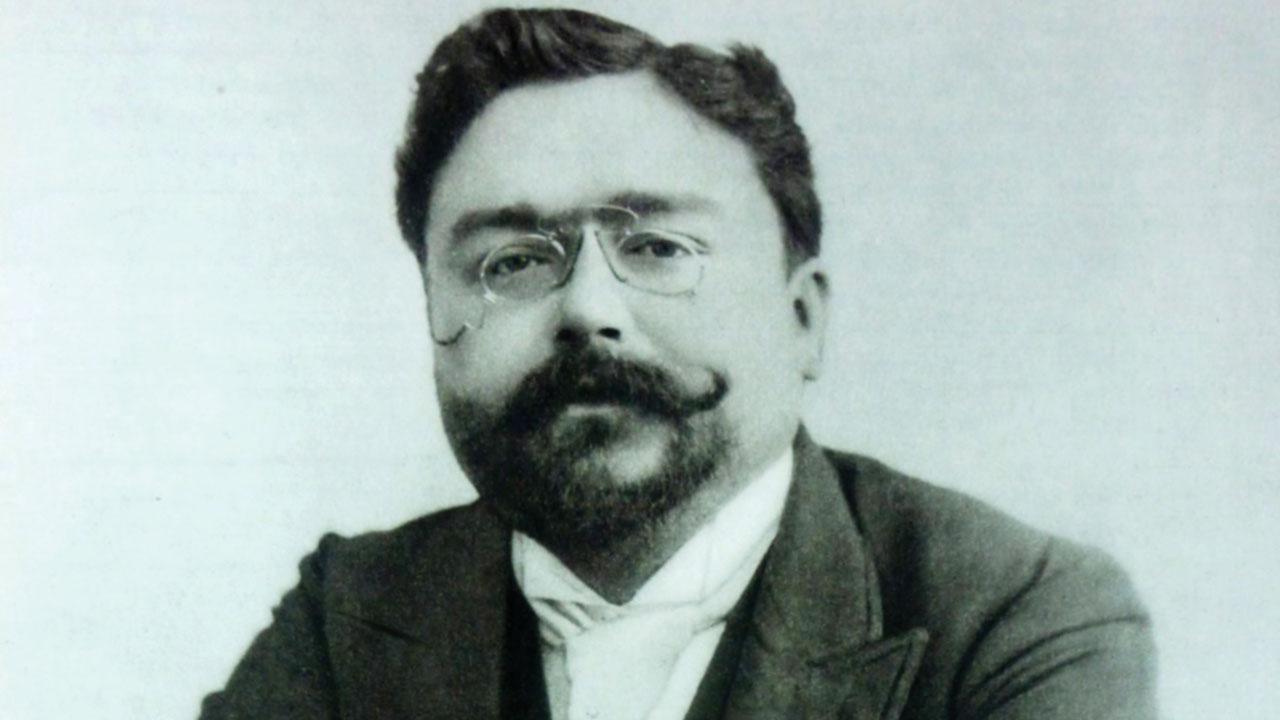An ensemble act attempts to translate a century-old Spanish composer’s work into Indian musical dialect this Friday

2 Indias Ensemble in performance
Every musical composition carries more than just notes. Culture, poetry, experience and myths seep into the compositions through the perspective of its composer. So, when Sahil Vasudeva came upon the idea of reimagining the 150-year old compositions of Isaac Albéniz in an Indian context, it posed new challenges. This new evolution will be part of 2 Indias Ensemble put on by Vasudeva, and backed by the Embassy of Spain in India, at The Royal Opera House this Friday.
ADVERTISEMENT
“The first part was to learn the music itself,” he tells us. A pianist by training, Vasudeva was first fascinated by Albéniz’s work, Asturias, but had never fully explored his music. It was while performing a show on poet-pianist Federico Garcia Lorca’s work for the Spanish Embassy in February that he was drawn to the century-old composer again. “Lorca was inspired by Albéniz as well,” he tells us.
It is no surprise that Lorca was an admirer. The 19th century composer Albéniz was among the greatest names in Spanish music. His compositions were enhanced by the folk idioms, myths and styles of Spain’s countryside to give Western classical music a new diction. This native influence is reflected in Lorca’s own poetic work. It was also the presence of these folk idioms in the Spanish work that convinced Vasudeva of the possibility of the crossover.

Sahil Vasudeva
To simplify things, the composer set out to transcribe all of Albéniz’s work into an Indian context. It took him a month and a half to write down the notes, rhythms and movements in the style of Hindustani music — a considerable challenge since the latter form has no practise of sheet music. He says, “Even if you write the note, there is no way of writing down the rhythm of each note.”
“The idea of time is also very different in the two forms. While everything is precise in the Western classical genre, without any room for improvisation; time belongs to the performer in Hindustani music,” he informs us.
To this end, the Delhi-based composer formed a partnership with musicians Suhel Saeed Khan (sitar) and Shahnawaz Khan (sarangi) — generational practitioners of music from the Dilli gharana — and percussionist Makrand Sanon. The use of the sitar was to mimic the Spanish influence of the guitar. “You don’t find this combination often. The idea was to build an orchestra quite like a piano concerto, but with an Indian feel,” the 36-year-old explains.

Isaac Albeniz. Pic Courtesy/Wikipedia.org
The musicians then set to work on the transcribed music by Vasudeva, and re-recorded them in their own style before learning by rote. Each note, and its timing, was worked on, the composer reveals. The only difference is Sanon’s percussion, which did not exist in Albéniz’s work, Vasudeva reveals. “We have added an interpretation of each piece to make them our own. There are diversions within the piece, a liberty I have taken with their interpretation. Albéniz is a Spanish national legend. I had to make sure I don’t trivialise the works either, while showcasing Hindustani culture.”
Does this not create a conflict within the compositional structure, you may wonder. Vasudeva’s reply is, “That is precisely why I did not change the score on the sheet music. The three voices of the piano are recreated through the sitar, sarangi and the piano. Each instrument becomes a leading voice during the performance,” he notes. Praising the dedication of his fellow musicians, Vasudeva admits the experience was enriching. “It opened me up to the complex work by Albéniz,” he says. Despite the geographical and cultural differences between India and Iberia, Vasudeva still hopes — in music at least — the twain shall meet.
On: November 18; 7 pm onwards
At: The Royal Opera House, Charni Road, Girgaum.
Log on to: insider.in
Cost: Rs 499 onwards
 Subscribe today by clicking the link and stay updated with the latest news!" Click here!
Subscribe today by clicking the link and stay updated with the latest news!" Click here!







